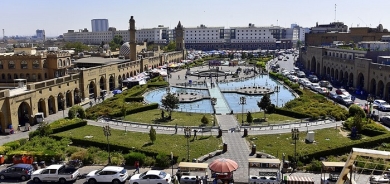New resolution on Syria drafted at U.N. council to focus on humanitarian angles

French Foreign Minister Alain Juppe said on Tuesday that the council was working on a third resolution, this time focusing on the escalating humanitarian crisis caused by Assad’s military operations against protesters.
The draft resolution, obtained by Al Arabiya, demands an immediate halt to all forms of violence in Syria and condemns the continued widespread, systematic, and gross violations of human rights in the country.
The latest push for action on Syria by the 15-nation council comes after Russia and China twice vetoed resolutions that would have condemned Damascus’ 11-month crackdown on pro-democracy protests and demanded an end to the violence, which has killed more than 7,500 people according to the latest U.N. figures.
The draft resolution calls on the Syrian government to cease all violence and protect its population, release all detainees and withdraw military forces from cities and towns nationwide.
According to the new draft resolution, Syrian authorities should immediately allow humanitarian access and fully cooperate with the United Nations and other humanitarian organizations to facilitate the provision of humanitarian assistance.
The draft also expresses full support to the Arab League’s decision to facilitate a peaceful political transition in the country and starting a serious political dialogue between the Syrian government and opposition.
Russia, U.N. diplomats said, has indicated that it would support a resolution that focuses exclusively on the humanitarian crisis without any mention of the political situation. Arab and Western diplomats, however, say that such a resolution would be unacceptable to them.
The Russians would most probably oppose to article 9 of the draft resolution, which states that in case of non-compliance with the resolution within 14 days, further measures could be considered by the member states.
The new U.S initiative, they said, could succeed since the Chinese have signaled that they might not want to keep vetoing Syria resolutions in the council.
They said that Chinese diplomats have repeatedly attempted to justify their Feb. 4 veto of a European-Arab draft resolution that would have endorsed an Arab League plan calling for Assad to step aside so his deputy could arrange free elections, saying they were voting against “regime change,” not the Arab League.
Two weeks ago, the 193-nation U.N. General Assembly adopted a resolution similar to the council resolution Russia and China vetoed on Feb. 4. But assembly resolutions, unlike Security Council decisions, are not legally binding.
If the United States, Europe and Arabs manage to win the support of the Chinese, or at least a pledge from Beijing to abstain and allow the resolution to pass, it will be very difficult for the Russians to stand alone and veto it.
AL ARABIYA














